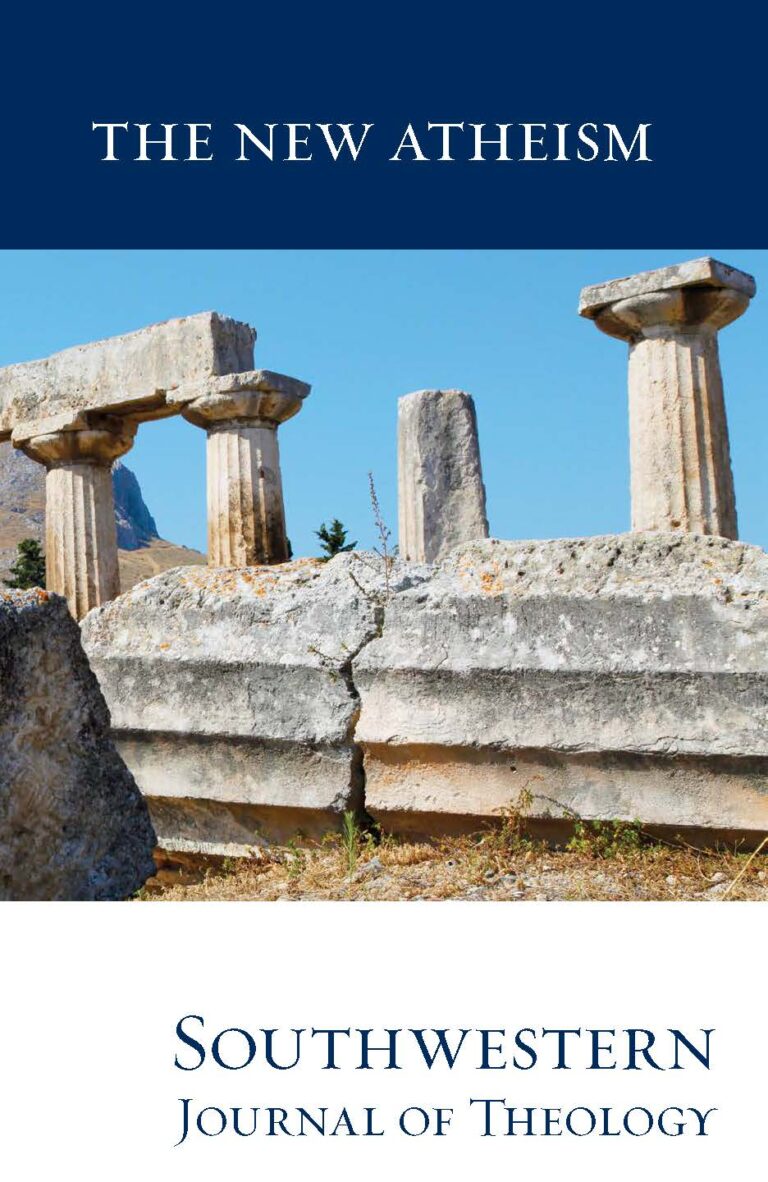
The New Atheism
Southwestern Journal of Theology
Volume 54, No. 1 – Fall 2011
Managing Editor: Malcolm B. Yarnell III
By Ben Witherington. Downers Grove: IVP Academic, 2009. 856 pages. Hardcover, $50.00.
Ben Witherington is a prolific writer, but this time he surpassed his former efforts by producing a two volume epic presentation on the theology and ethics of the New Testament, both of which are over 800 pages in length. Volume One focuses on the various ways that each of the contributory writers of the New Testament presented their witness of what Jesus Christ said and did to create a new God “image” through the words and actions of the gospel, with its resulting message and world shaping impact.
There are some interesting contributions that this volume brings to the discussion of the theological and ethical message of the New Testament. First, is that theology and ethics are not to be separated, but rather to be taken as a whole. Ethics is not seen as a derivative of theology, but rather the natural completion of its meaning. For instance, Witherington repeatedly underscores that salvation is not a completed act just by believing the message. There has to be a resulting life change and pattern for salvation to be a reality. In fact, he insists throughout this first tome that salvation can be lost when one does not live by the essence of the salvation type of life. It is interesting that he teaches in a Methodist Seminary (Asbury), because he seems well fitted for teaching in that theological context. The security of the believer was even disparaged in some of his interpretations. He rarely even explores and explains the passages that present that foundational theological concept. Nevertheless, his interpretation puts a heightened importance on the value of consistent Christian living out what one professes to believe about Christ and the moral life.
A second area of contribution is that of creating a type of biblical commentary on the whole New Testament, through a fairly thorough exploration of the contribution which each New Testament author made to the theological and ethical content of the Christian message. There is a thoroughness and almost exhaustive dimension to the exploration of details of numerous passages of Scripture, along with comparisons and contrasts to other passages, as well as current literature of the biblical period. Witherington also makes an evangelical response to a considerable number of controversial issues of interpretation of various New Testament texts. He often engaged in giving extensive response to the writings of other current authors on those controversial issues, and at times his responses consumed so much space that it distracted the reader from Witherington’s assessment of the biblical content itself. Nevertheless, the “subject index” at the end of the book is a useful tool for reviewing the various issues which are treated in this valuable volume. Also, it is instructive to note that Volume Two of this set of works by Witherington focuses on a considerable number of the theological and ethical issues in the New Testament. For anyone interested in having a thorough analysis of the theological and ethical content of the New Testament, these two volumes are a must read.





